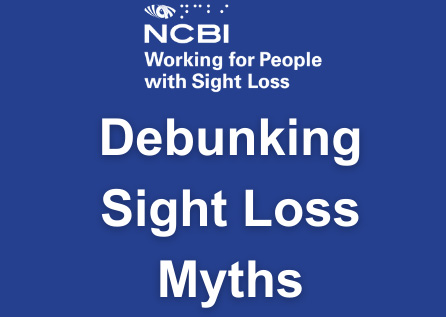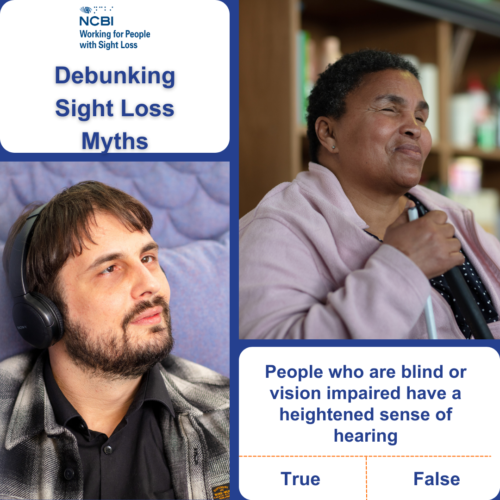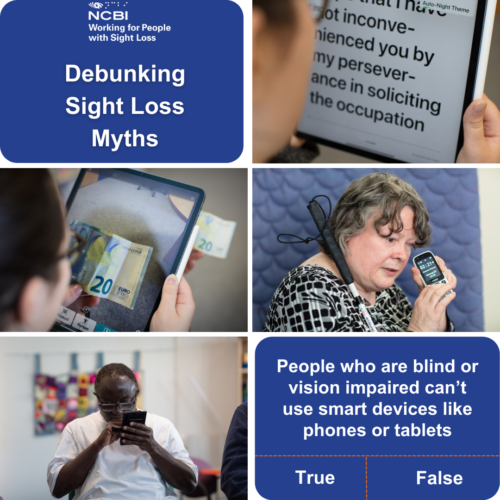
People who are blind or vision impaired have a heightened sense of hearing. True or False?

There is a common misconception that people who are blind or vision impaired have developed heightened senses, including better hearing. This is not the case at all, so the above statement is false.
For someone who is blind or vision impaired, their senses remain the same as they would be if their sight was not affected by their individual conditions. So regardless of whether a person may be born blind or with a vision impairment or acquire their sight loss due to age, illness or accident, it isn’t possible for a person’s remaining senses, including their hearing, to suddenly improve. Of course, people who are blind or vision impaired do rely on their remaining senses particularly their sense of touch and hearing. They use these to maximum effect to help them navigate their daily lives.
People who are blind or vision impaired can’t use smart devices like phones or tablets. True or False?

Many of the devices that we use everyday have functions built in to make them more accessible, so the above statement is false. People who are blind or vision impaired are able to use iPhones or iPads or similar mainstream devices.
In some cases, people with sight loss conditions, can use these devices with few accessibility features activated, while other people need more advanced features activated, or additional apps to increase accessibility. This all depends on how much residual vision an individual has.
For people who don’t wish to use smart devices, there are specific phones available for the sight loss community that are packed full of accessibility features. If you require assistance, training or information on smart devices, you can contact the NCBI Labs team via email on [email protected] or by phone on 1800 911 110.
People who are blind or vision impaired work in meaningful and diverse jobs. True or False?

Just because someone has lost some or all of their sight, doesn’t mean they are incapable of acquiring and thriving in a job. Of course it’s true that people who are blind or vision impaired can have meaningful and diverse jobs.
People who are blind or vision impaired are, and can increasingly be, a valuable resource in the jobs market. In many instances, a person with a vision impairment can do their job with no additional requirements from their employer. In other cases, simple adjustments, like using pieces of assistive technology or improved lighting, is all that is needed to enable people who are blind or vision impaired to work to the same standard as anyone else.
NCBI is here and can be a valuable resource for any job seeker or employer who wishes to explore options on how to hire blind or vision impaired staff members. To enquire about these options you can make contact via the NCBI info line on 1800 911 250.
People who are blind or vision impaired travel independently. True or False?

People who are blind or vision impaired are well able to travel independently, so the above statement is true.
For people who have lost their sight, it is of course a difficult experience adjusting to their new normal. Part of that process is also adjusting to techniques they need to use to get out and about safely, but consistent training in those techniques builds confidence and can make independent travel a reality.
Many outside factors such as poor public transport or inaccessible transport or cluttered footpaths can make independent travel and orientation and mobility more difficult. Members of the public should be mindful to keep footpaths and walkways as clear as possible to allow someone with a visual impairment to navigate effectively. If you are interested in more information about orientation and mobility training and independent travel training, you can make contact via the NCBI info line on 1800 911 250.